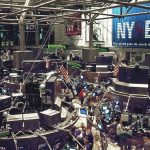These were the fruits of Desert X AlUla, a partnership between Desert X, a California-based art biennial that had staged two previous exhibitions in the Coachella Valley, and the Saudi government, which had coaxed Desert X to mount a show in its own western desert at the country’s expense.
Controversy ensued, as it tends to when Saudi Arabia — whose government has hacked the iPhone of one of the world’s richest men, tortured dissidents, dismembered a critical journalist and helped ignite a humanitarian disaster in Yemen — overlaps with Western institutions. Three of Desert X’s board members, including the prominent artist Ed Ruscha, resigned in protest. The Los Angeles Times’s art critic, Christopher Knight, scathed the “morally corrupt” collaboration as “merely putting lipstick on a pig.”
For the Saudis, the benefits were clear. Until recently, many Saudis avoided the rock-hewn pre-Islamic tombs at Al Ula out of a pious superstition that they were haunted, and non-Muslim tourists who wanted to visit the country almost never found a way in. Now, in Crown Prince Mohammed bin Salman’s drive to open Saudi society and expand its economy beyond oil, Al Ula is to be reincarnated as the kingdom’s star cultural and heritage attraction. Officials hope its miles of breathtaking desert and Petra-esque ancient tombs will draw 2 million tourists by 2035.
There will be a resort designed by Jean Nouvel. There will be a nature reserve and an effort to repopulate such species as the Arabian leopard. There will be a permanent arts district, with Desert X, through March 7, as its first hurrah.
“Culture,” Amr AlMadani, the Riyadh-based executive overseeing Al Ula’s development, said at a welcome dinner the night before the show’s opening, “has nothing to do with politics.”
The crowd applauded. But he had turned on its head the reasoning Western business titans and others cite when it comes to Saudi Arabia: that getting involved may nudge the kingdom toward a more modern, freer society. Cultural and economic dialogue could act as a kind of “can opener,” as one Desert X artist, Jakob Fenger, of the Danish collective Superflex, put it.
“Culture and politics, they’re all part of the same thing,” he said. “If you believe that art can change things, you have to do it. Nothing will happen unless you do something.”
Of course, a similar argument attracted Westerners to China as it opened to foreign business decades ago, gambling that their influence would eventually liberalize the country from the outside in. But China’s tolerance for free speech and human rights has only shrunk, and its government is now locked in a deepening standoff with American business and political leaders.
At the opening of Desert X, the talk was a heady cocktail of erasing boundaries, breaking down walls and bridging gaps.
The show was “a vessel that transcends all boundaries, that transcends time,” said Raneem Farsi, one of the two female Saudi curators.
But Manal AlDowayan, a Dubai artist whose installation “Now You See Me, Now You Don’t” stood not far away, brushed off the high-flown press-conference chatter.
“Throw all of it out,” she said. “They talked about building bridges. I don’t know about that. We’re just here making art.”
Though the setting is new, the five Saudi artists in the exhibition have arguably already crossed boundaries and bridges; like many other Saudi artists, they have lived, studied or exhibited in Europe or the United States. (The rest of the nine artists in the show are Middle Eastern or based in the United States or Europe.) Still, Desert X leaders spoke proudly of the efforts they had made to include local residents, like holding art workshops for Saudi women or making entrance to the exhibition free.
To Saudi Arabia, which covered the artists’ travel expenses, Desert X is as much a profit driver as a meeting of minds. Mr. AlMadani said the government hopes tourism will make up three-quarters of the Al Ula-area economy by 2030. More than 50,000 tourists came in 2019, he said, including visitors to a music festival featuring Andrea Bocelli, the Italian tenor, and Lang Lang, the Chinese pianist.
Though analysts have questioned whether foreign tourists will want to visit a country with an alcohol ban, customs that frown on gender mixing and a reputation for authoritarian repression, Mr. Al Madani believes they’ll come in droves. If anything, he said, there’s a danger of overcrowding that would threaten the area’s archaeological jewels and natural beauty.
Early adopters are already here, ready to visit uncrowded sites nobody back home has ever Instagrammed.
“I feel like it’s a preview,” said Tomoya Tsuruta, a Japanese tourist at one of Al Ula’s ancient ruins who decided to visit Saudi Arabia after it introduced electronic tourist visas for citizens of 49 countries last year. “I feel privileged to visit before other people come.”
In small, dusty Al Ula, a town of 45,000 where the economy revolves around government jobs and small fruit farms, development means unexpected prosperity.
The government commission overseeing the area’s development has given scholarships to 500 local residents to study abroad and sent dozens of local guides and hospitality staff to train in Europe and the United States, all to prepare for the tourists.
One guide hired to give tours of a ravine with thousands of ancient Nabatean rock carvings, Hamed Alimam, said his father, sister and uncle all had jobs with the commission. A friend had trained at a culinary school in France, at government expense, before returning to work as a cook at a new restaurant. People who had left for jobs elsewhere were returning.
“All the other towns are jealous of us,” Mr. Alimam said. Still, he was unsure that tourists and jobs would come in the huge numbers the government had projected.
“As Hamed, me, I don’t know,” he joked. “But as Hamed, with the royal commission? Yes, I think so!”
Beyond Saudi Arabia’s offer to host and pay, a rarity in contemporary art, the benefits of collaborating are gauzier for Desert X. (The organization did not disclose the amount.) Susan Davis, its founder and chair, cast the exhibition as a chance for Westerners to learn about Saudi society beyond the headlines and the stereotypes, and for Saudis to gain exposure to the Western art world.
“Engaging people to people, being able to start that dialogue, was something we were brave enough to take on, and I do think brave is the word,” she said.
Though Ms. Davis said art and politics are “two totally different areas,” she acknowledged that politics hung over the decision to work with Saudi Arabia.
“I don’t know that it will” have an impact, she said, “but that’s our hope. We’re not thinking about changing politics now. Having the conversation, I think that’s a first step.”
Asked about criticism that she was helping whitewash Saudi Arabia’s stained reputation, Ms. Davis protested, “We’re a tiny organization. We ain’t the Metropolitan Museum.” She said she was prepared to close Desert X if the controversy proved too great.
But she was already convinced that the Saudi foray had been a success. Most moving to her, she said, was a sculpture of a royal-blue woman sitting on a massive rock, surveying puddles of blue scattered across the sand: Lita Albuquerque’s “Najma (She Placed One Thousand Suns on the Transparent Overlays of Space).”
According to Desert X, it was the first sculpture of a woman on public display in modern Saudi Arabia, where Islamic tradition discourages figurative representation.
Ms. Albuquerque, an American artist who has featured the Najma character in previous works, said she had agreed to clad the sculpted woman in an abaya after a Saudi official expressed reservations about the woman’s form-fitting outfit.
Though some might call it government interference, she said she saw it as a matter of cultural sensitivity — no different, Ms. Davis added, than rejecting proposals to mount artworks in sacred indigenous areas around Coachella.
It was the chance to work with local female weavers that persuaded Sherin Guirguis to participate despite her doubts, she said. Ms. Guirguis, an Egyptian-American artist based in Los Angeles, held weaving workshops and contemporary art lectures for women in Al Ula. Her work there and elsewhere aims to restore overdue recognition to the traditional handicrafts of Arab women, and she argued that going to meet young Saudi artists was at least a starting point to open her mind and theirs.
Maybe it would lead to something; maybe not.
“From a Western perspective, it’s very easy to look at the politics of a place and the government of a place, and to make those decisions to reject them, and the people who get affected are the people we claim to want to help,” she said. “Will the work that I’ve done there make the world’s smallest dent and help move things forward? I hope so.”
Source: NYT > Business




